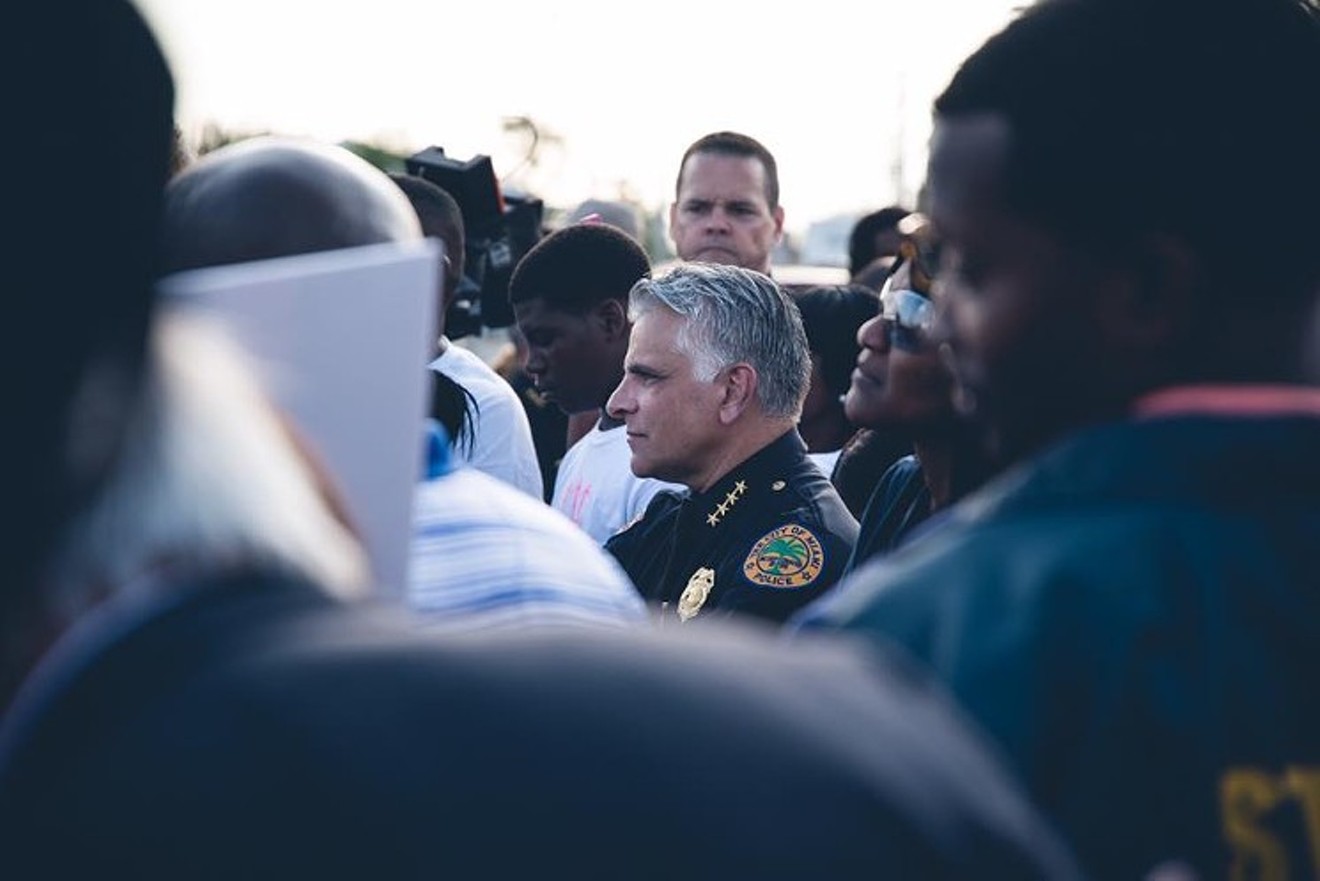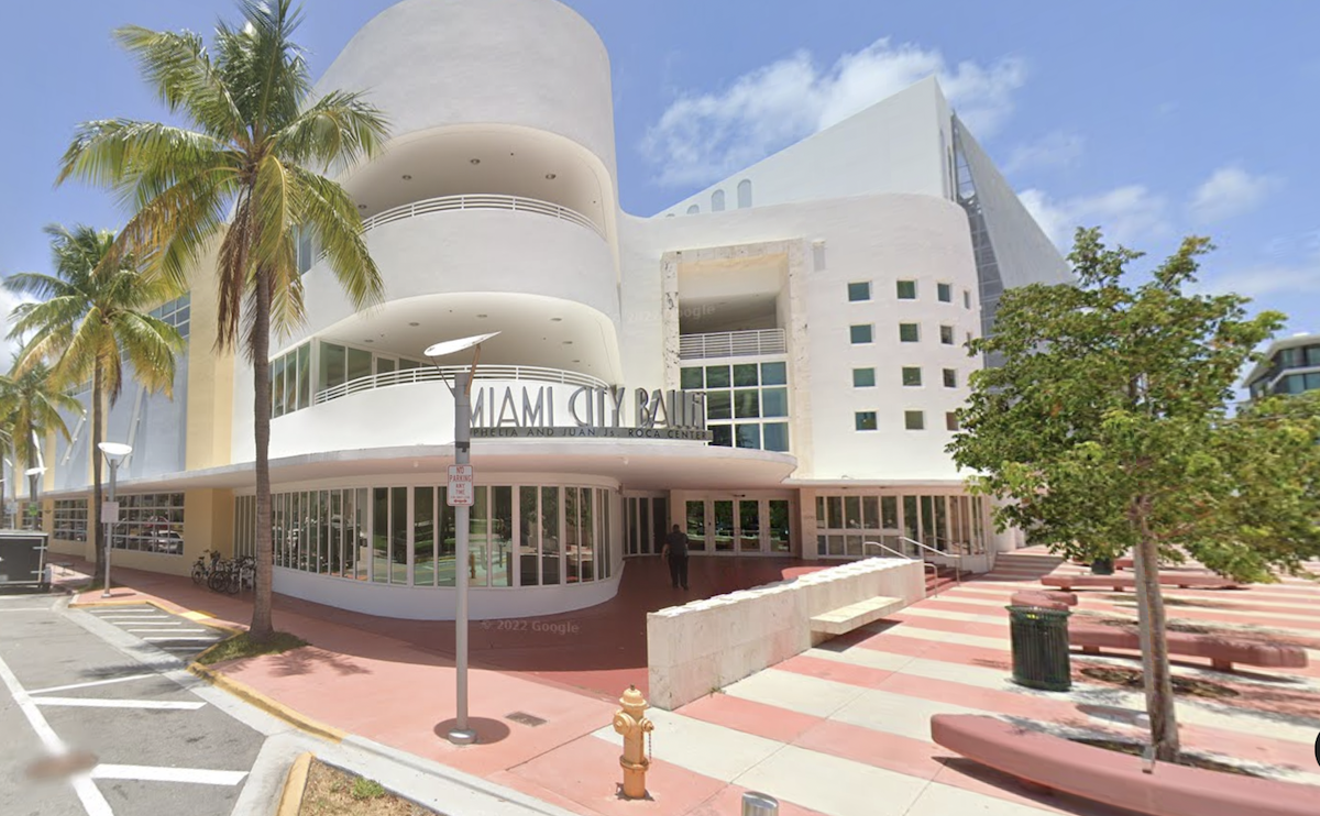Amid the backdrop of protests and rallying cries against racist policing, the head of the City of Miami's black police union, the Miami Community Police Benevolent Association (MCPBA), has unearthed an instance when Chief Jorge Colina allegedly used the N-word during a law-enforcement training session about drug operations in 1997.
"This is a secret in the closet that Colina doesn't want to come out," says Sgt. Stanley Jean-Poix, president of the MCPBA.
Jean-Poix says that for years, the MCPBA has received countless complaints from retired officers and longtime members of the police department about the alleged incident. The slur became a part of the department's folklore over the years, he says, but no one could substantiate the claims and many believed Colina was never reprimanded.
Jean-Poix says he spent months requesting public records and interviewing at least ten union members who held various positions within the police department and were familiar with the incident. At least four of those sources confirmed to Jean-Poix that while Colina was an officer in the Special Investigations Section, he referred to Overtown — one of Miami's segregated, historically black neighborhoods — as "Niggertown" during a presentation about his experiences in street narcotics. The class involved officers from police departments across Miami-Dade and Monroe counties.
"He didn't say it at the dinner table," Jean-Poix says. "He didn't say it at the water cooler. He said it in a class with experienced officers."
New Times reached Colina via text message yesterday afternoon and requested a phone interview to discuss the allegation. Colina responded with a text message: "Outrageous. My record speaks for itself. Unbelievable that my detractors would use this critical moment in our nation for their own selfish, self serving agenda. Disgusting."
He did not respond to a follow-up call and text.
When New Times reached out again this morning, Colina responded that he was in a city commission meeting but denied Jean-Poix’s claims: "But yes I do dispute that I used a racial slur. And you're being used."
He did not respond to a text asking if he would make himself available for an interview.
The MCPBA announced in a press release this afternoon that it plans to hold a press conference tomorrow at 4 p.m. to discuss its findings and call for Colina's termination.
When Colina was sworn in as chief in January 2018, the N-word story resurfaced. Last year, while the MCPBA was representing black officers who filed complaints against racist statements and behaviors by white officers, Colina's use of an epithet came up again.
"We said, let's do an actual investigation into this," Jean-Poix says.
One of the union president's sources told him Colina had in fact received a formal reprimand. The union president says he reviewed the chief's personnel file and internal affairs records and found nothing. He thought that was the end of it. Then he remembered that the city maintains records of all its employees in a government building along the Miami River.
Jean-Poix made an appointment to review Colina's file in mid-March and discovered a vaguely worded reprimand that lined up with the complaints the union had been hearing.
The reprimand, dated May 6, 1997, reads in part:
On Tuesday, April 15, 1997, Officer Jorge Colina was instructing a class of experienced officers on Street Narcotics Operations. As a teaching technique, Officer Jorge Colina related an experience into his street narcotics presentation that was offensive to some members of the class. Although Officer Colina apologized to the class the utterance of the scenario was inappropriate.The reprimand concludes that Colina violated departmental policies on tact and consideration.

A 1997 reprimand placed in Jorge Colina's file.
Photo by Miami Community Police Benevolent Association
In a presentation to the city commission in January, MCPBA leaders outlined several cases that illustrate that pattern, including instances in which a supervisor used a racist slur against a black subordinate, a supervisor mocked a Haitian detective for his accent and proficiency with the English language, and a detective who found an image on his desk that showed a decapitated black man. In each case, the union said the incidents weren't addressed and that the officers who filed the complaints were demoted or transferred to other departments.
Lt. Ramon Carr, vice president of MCPBA, says some of the organization's members have taken issue with TV news appearances during which Colina has praised the department for its community policing, training, diversity statistics, and handling of recent protests when the leadership hasn't addressed racism inside the department.
"These guys know racism is pervasive in the police department," Carr says. "They just felt it was a slap in their face."
Carr, Jean-Poix, and the union's sergeant-at-arms, Sgt. Travis Lindsey, have led the effort to bring Colina's alleged use of the slur to light. They say they expect some form of retaliation.
"There aren't enough law-enforcement officers speaking up or pushing back against their peers when their peers are doing something wrong," Carr says. "What do you do? Do you allow it to happen?"
The MCPBA leaders say talking about the 1997 incident is important because they believe that if Colina used a slur to describe an entire community, he might harbor implicit biases that affect his ability to address racism in the department and to work to root it out.
Jean-Poix says union leaders want to set an example for others, especially younger officers, by taking a stand against something they believe is wrong in the Miami Police Department's history.
"Call me crazy, but I feel like it's the morally right thing to do," Jean-Poix says. "It's a bad culture, and you have to break it."












